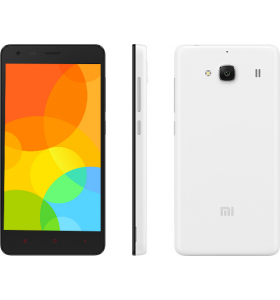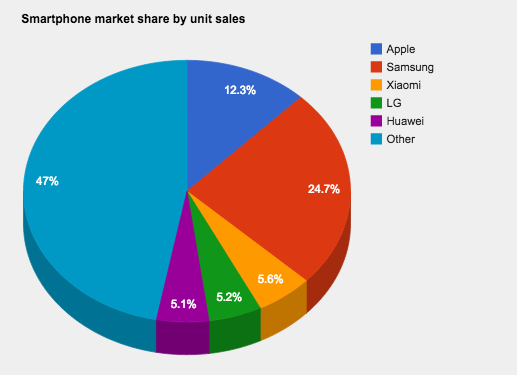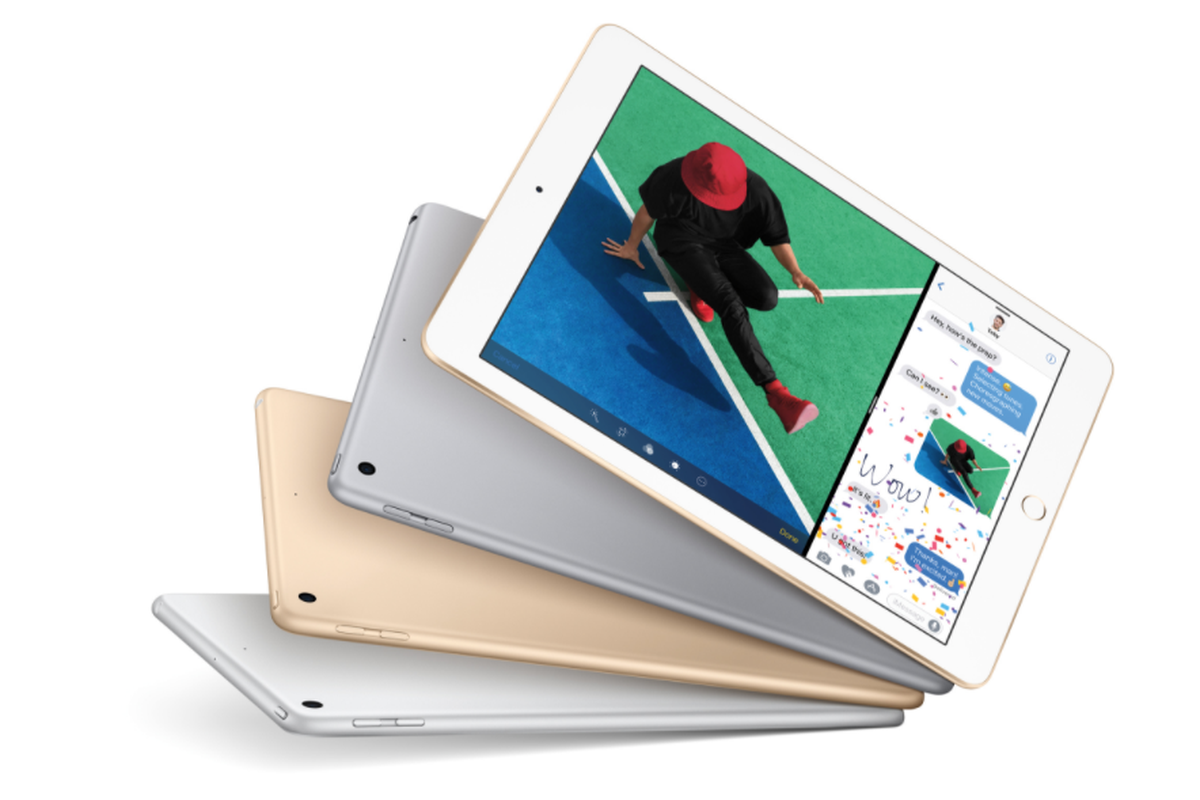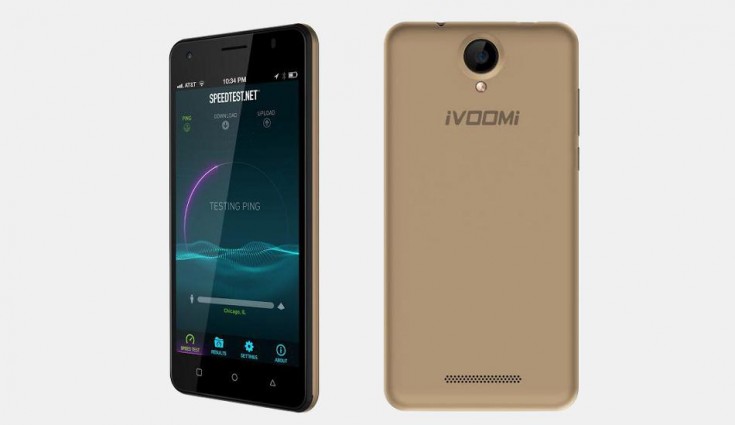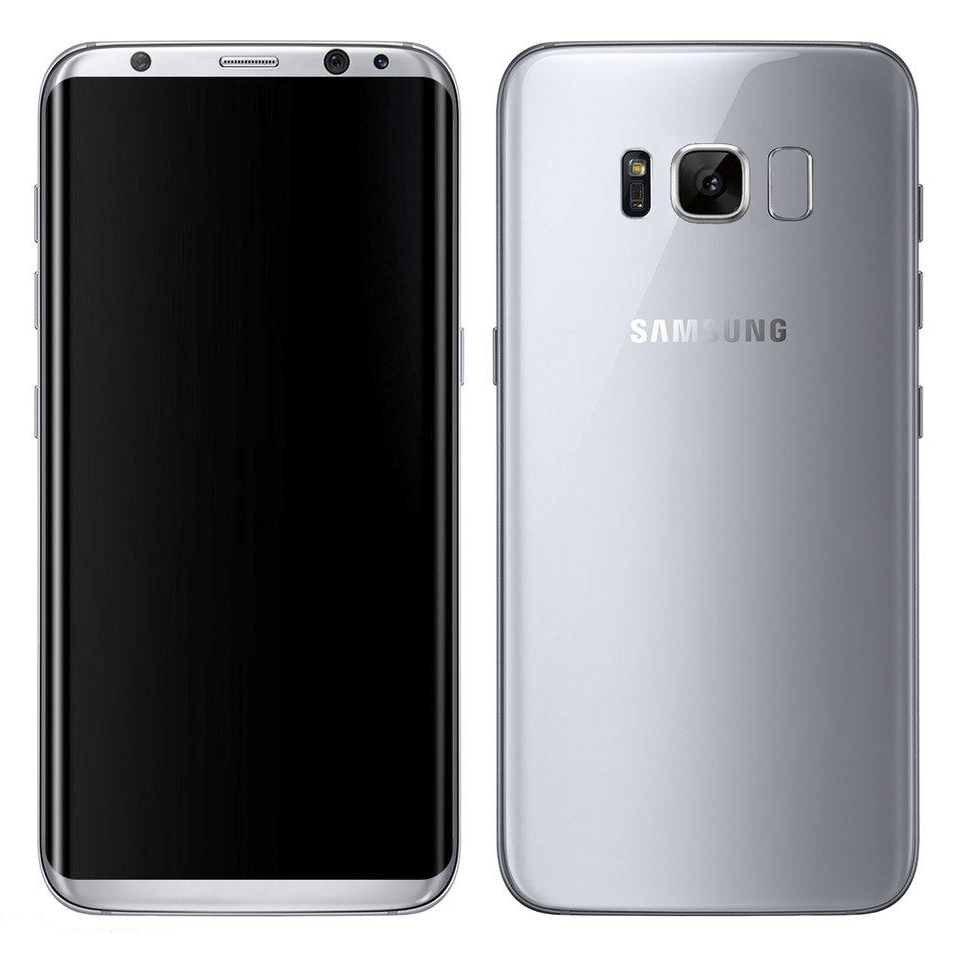What is Xiaomi? Getting to know the Chinese company that is taking on Apple
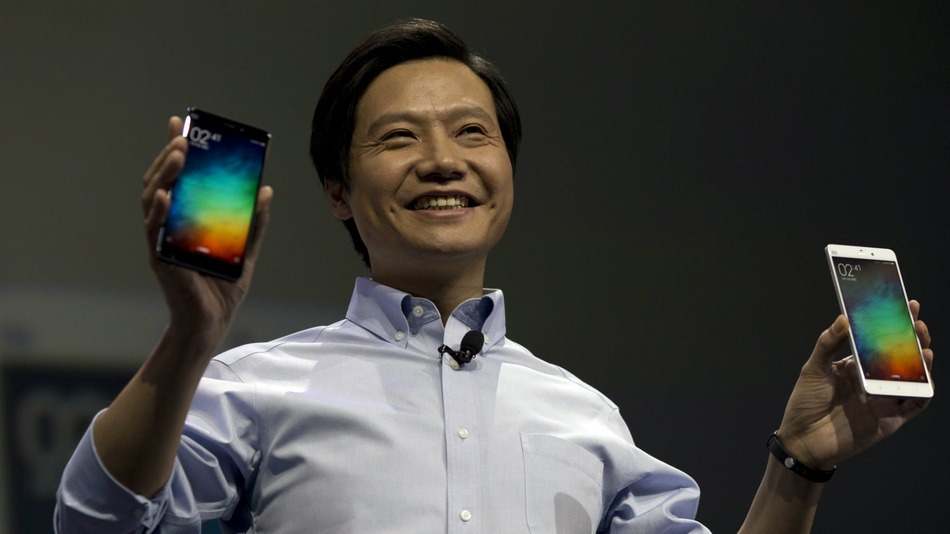
Lei Jun, chairman of Chinese smartphone maker Xiaomi, holds up the latest models of the Xiaomi Note at a press event in Beijing, Thursday, Jan. 15, 2015.
There may be no hotter company on the planet than Xiaomi.
In less than five years, the company has gone from startup to global player in the smartphone market. Analysts compare it to Apple. Its products cover both the low-end and the high-end of the market. And it has plans to move beyond Asia.
Still, it is something of an unknown. Foreign companies sometimes have a hard time getting recognition in the U.S. (Alibaba being the prime example). In an attempt to alleviate this, here’s a straightforward look at what Xiaomi is and where it’s headed.
What is Xiaomi?
Xiaomi is a Beijing-based company that primarily manufactures smartphones.
What are some of Xiaomi’s products?
The Mi Note is Xiamoi’s flagship product. Released on Thursday, the 5.7-inch phablet is being regarded as an answer to Apple’s iPhone 6. It is priced at 3,299 Yuan (about $530). CEO Lei Jun reportedly made numerous comparisons between the two phones at the Mi Note’s launch event.
The Redmi 2 is the company’s entry into the affordable smartphone category. It retails for 699 Yuan, or about $113. It runs on the Google’s Android mobile operating system and has a 4.7-inch screen.
Why should I care about a Chinese smartphone manufacturer
Xiaomi’s meteoric growth has taken it from startup to major player in just a few years. This is thanks in part to its native Chinese market, which has seen smartphone adoption rise sharply.
If it can continue to see growth in China and other emerging markets, Xiaomi could eventually rival Apple in the smartphone market.
What does “Xiaomi” mean in English?
Xiaomi means “millet,” which is a grain that is staple of diets in various parts of the world.
The company name in Mandarin characters is 小米.
How is “Xiaomi” pronounced
This can be a tough one. The name sounds phonetically like “SHEE-ow me,” but that is an anglicized way to pronounce it.
Where did this company come form?
Xiaomi was founded in June 2010 as a collaboration among eight partners including mobile chip developer Qualcomm and Temasek Holdings, which is an investment firm owned by the Singaporean Government.
The company’s first product was Android software, with its first phone — the Xiaomi Mi1 — having been released in August 2011.
After that, Xiaomi’s rise to success was swift. In 2014, the company sold 61 million phones, more than triple the number it moved in 2013. At the end of 2014, the company received $1.1 billion in funding, bringing its valuation to a staggering $45 billion.
The company was founded by Lei Jun, a serial entrepreneur and angel investor. He currently serves as Xiaomi’s chairman and CEO.
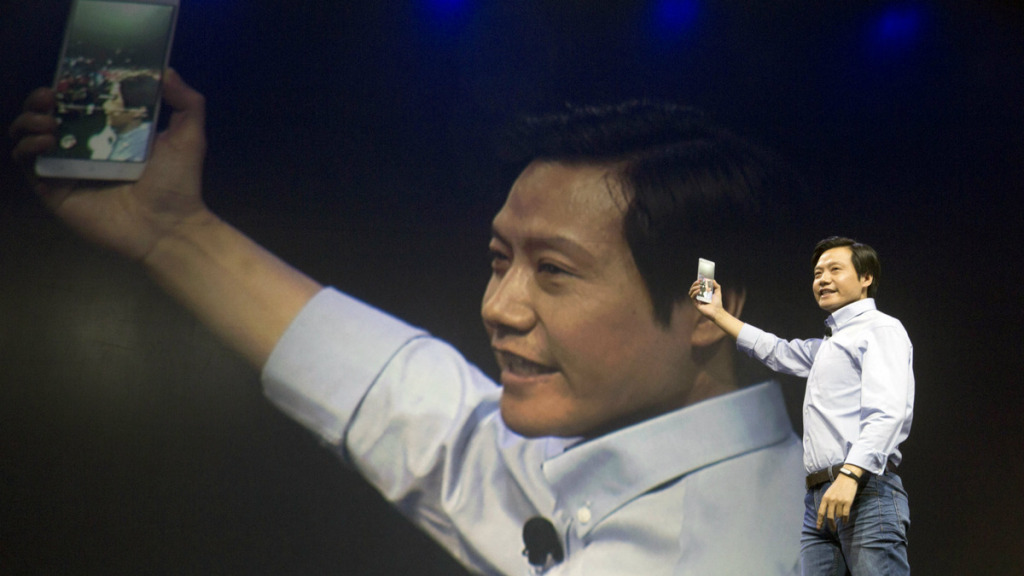
Lei Jun, chairman of Chinese smartphone maker Xiaomi, takes a selfie on the latest Xiaomi Note smartphone at a press event in Beijing, Thursday, Jan. 15, 2015.
How big is Xiaomi?
The company’s valuation sits between $40 billion and $50 billion, based on its most recent funding round.
In 2014, Xiaomi brought in revenues of $12 billion, according to Bloomberg. That is still quite small compared to Apple, which had sales of $182.8 billion in its most recent fiscal year. Samsung’s 2014 revenue was about $200 billion.
So can I go buy a Xiaomi phone?
If you’re in the U.S., not quite yet. Xiaomi’s vice president of international, Huge Barra, told the BBC that it will probably be “a few years” until the company reaches the “tier one” markets, which would be the U.S. and Europe.
Xiaomi will instead focus on developing markets, which are not already as saturated with smartphones.
Xiaomi’s primary markets are China, India and Indonesia.
Does Xiaomi make things other than smartphones?
Yup. It makes a phablet that seems to be aimed at the iPhone 6 Plus. It makes headphones. It just released a streaming box similar to Roku and Apple TV.
It is also reportedly looking to make investments in other areas, including smart-home technology.
Any controversies?
This is the smartphone market. Of course there are some controversies.
Xiaomi has been accused by various companies of infringing on patents.
Ericsson sued Xiaomi and was able to win a court order in December that blocked the sale of Xiaomi devices in India. Ericsson is claiming that Xiaomi is violating patents on wireless networks, which the companies have previously been in talks to license.
Xiaomi has a very thin patent portfolio, which analysts worry may stall the company’s growth as it attempts to move into other markets.
While that issue is not as much of a problem in China, it has still faced some legal problems in its homeland. Video website Youku Tudou sued Xiaomi in October 2013 for streaming certain TV shows on its set-top box.
This will be an issue to watch going forward, as Xiaomi comes into more direction competition with the players in this industry. Some believe it could be only a matter of time until it meets Apple in a courtroom.
Source: Mashable


